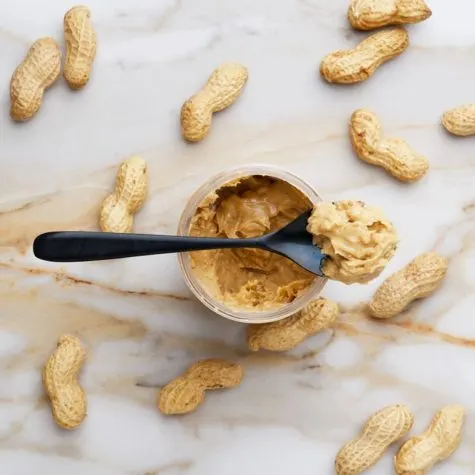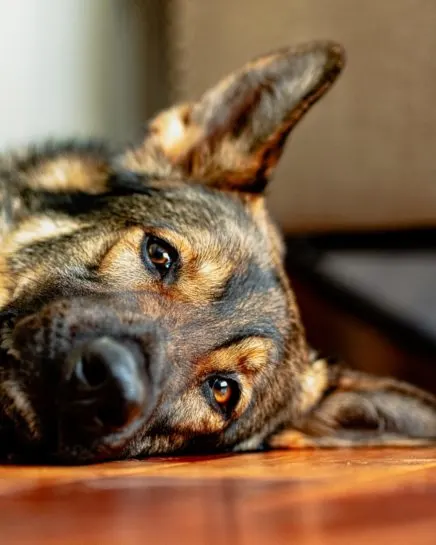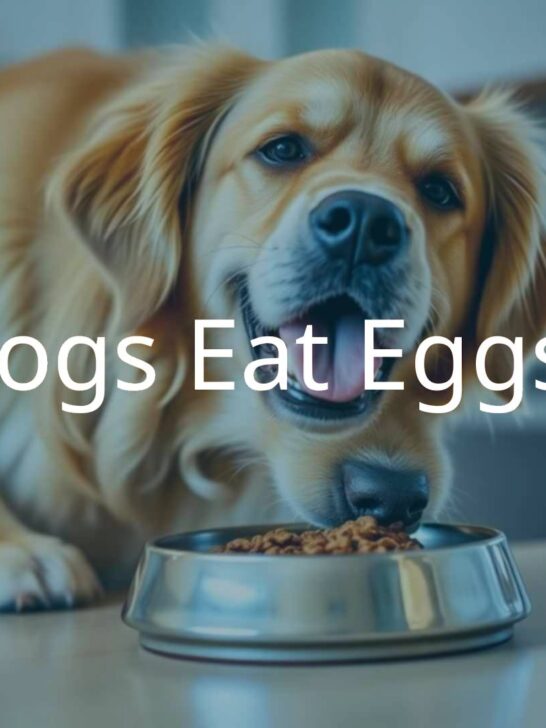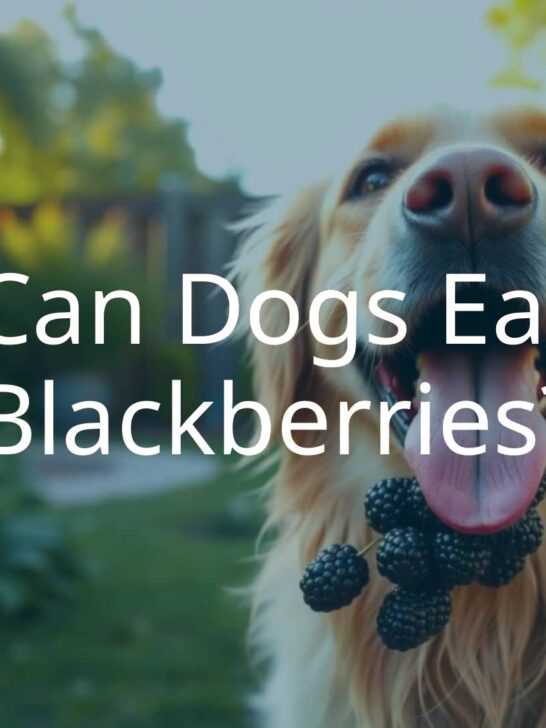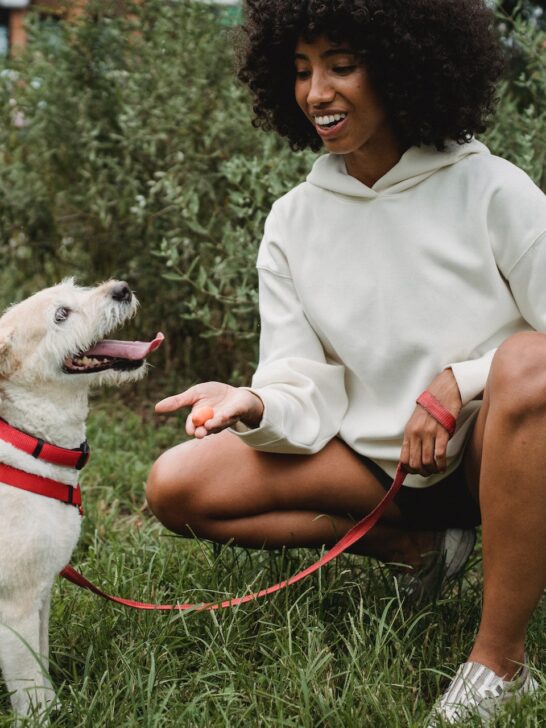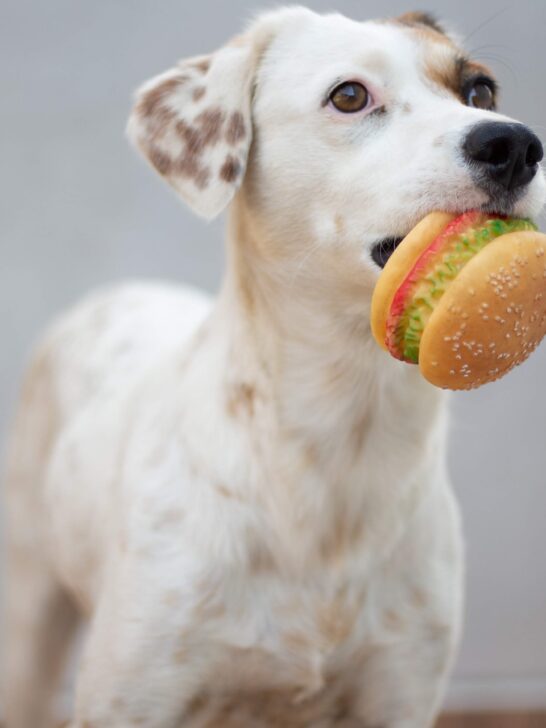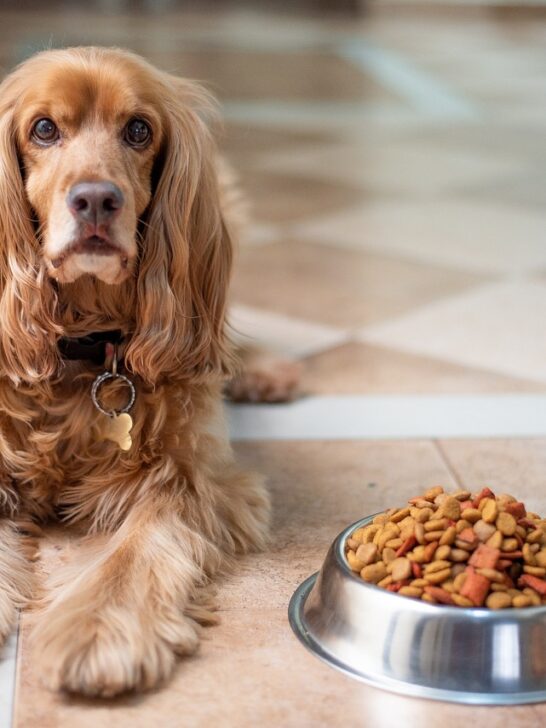Can German Shepherds Eat Peanut Butter: Find Out If This Treat Is Safe for GSDs
Like PB&J, dogs and peanut butter seem to just go together. In some cases, German Shepherds and peanut butter go together so well you may wonder if your dog is a part peanut!
But while peanut butter is a staple treat food for many GSDs, there are some important things you need to know before you feed your German Shepherd this tasty nut butter.
In particular, you do need to take some precautions to make sure your dog doesn’t come to any harm from eating peanut butter. We will talk about these precautions and much more in this article.
Can German Shepherds eat peanut butter?
The answer is that as long as your German Shepherd does not show any signs of food sensitivities and you are sure the peanut butter is plain and high quality, it can be a good treat.
As the video at the end of this article will clearly demonstrate, they sure can!
But should a German Shepherd eat peanut butter? This is a more complicated question.
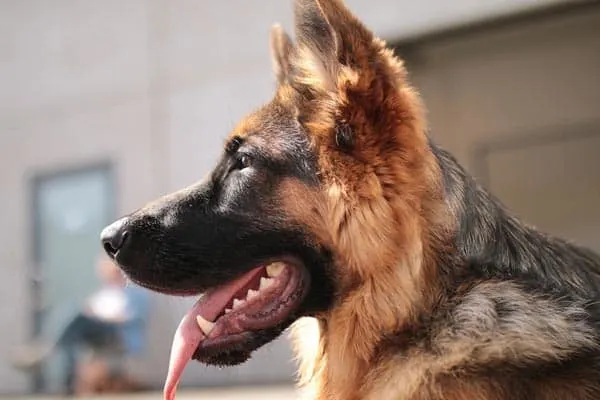
Is It Safe for a German Shepherd to Eat Peanut Butter?
According to What Can Dogs Eat, The first and most important question you must always ask before feeding your dog peanut butter is simply this: is it safe?
The answer to this question can be found on the peanut butter ingredients label.
What many dog owners find out only too late is that some brands of peanut butter contain all sorts of other things besides peanut butter.
Some of those other ingredients can be dangerous or even life-threatening to your dog.
Xylitol
As the American Kennel Club (AKC) points out, xylitol is a common sweetener used in many people’s foods today. It is a sugar substitute that also occurs naturally in some fruits (like raspberries).
But in its concentrated form, it is like eating a whole grove of raspberries. And it is deadly for dogs.
Xylitol causes a very fast spike in your German Shepherd’s insulin and an equally rapid decline in blood sugar. It can cause death in as little as 10 minutes.
Peanut butter with added xylitol (or any food with added xylitol) should be removed from your home just for safety’s sake.
Sugar
Sugar is not as deadly as xylitol, but it is still not on the approved list of treat foods for dogs.
Your German Shepherd has evolved to be an omnivore like you (and quite unlike their wild wolf ancestors). So your dog can tolerate naturally-occurring sugars such as those found in fruits.
But refined sugar can cause a digestive disturbance, spikes in blood sugar that eventually causes diabetes, weight gain, and dental decay, among other problems.
Peanut butter with added sugar should always be avoided if you are buying it for your dog.
Salt
As WebMD for Pets points out, salt intake comes with a number of dangers when it is your German Shepherd eating it.
Too much sodium can cause digestive disturbances, bloating, high blood pressure, tremors, and – most worryingly – sodium ion poisoning. This last can at times is fatal.
Never feed peanut butter that has added salt to your German Shepherd.
Mono and diglycerides
As DogLab explains, there has been very little research into the potential safety hazards of feeding mono and diglycerides to dogs. However, it still isn’t a good idea, and here is why.
While mono and diglycerides (like xylitol) occur naturally to some degree in certain foods, in foods like peanut butter it is added as an emulsifier, or way to get water and oil to combine.
In short, it is added to get food to do things food doesn’t normally do. This is called “processed food.” Processed foods, in general, are on the no-no list for dogs (and probably should be for people as well).
The canine digestive tract doesn’t recognize processed foods and these altered foods can cause digestive disturbances, vomiting, gas, bloating, and constipation.
In German Shepherds with a sensitive stomach or food allergies in particular – it can also cause allergic reactions.
Since the option exists to feed your German Shepherd natural peanut butter that has not been processed, there is truly no reason to feed a peanut butter product to your dog that contains mono and diglycerides.
Fungus
Dogs Naturally Magazine explains that peanuts can contain a fungus called aflatoxin, which is a mycotoxin.
These mycotoxins can cause liver damage and cancer, autoimmune conditions, and sometimes death, as well as a host of other lesser side effects.
As health expert Dr. Josh Axe points out, there are a number of crops known to contain aflatoxins, which typically form before the food is harvested and processed for human (or canine) consumption.
These toxins are part of the decomposition process of the food, but can also form in any area where humidity and heat are high or where the soil is contaminated.
Unfortunately, even peanut butter that contains only pure peanuts may still contain aflatoxins. This is why it is so vital to only offer your dog very small amounts of peanut butter until you see how they respond.
Once you find a nut butter brand that your dog seems to tolerate well, make sure to only buy that brand and to check the expiration date carefully.
Do German Shepherds Ever Get Peanut Allergies?
Peanut allergies have become a very hot topic in recent years with parents.
Because some children have very severe peanut allergies, some schools and kid-centric programs won’t even serve any peanut butter for snacks.
But do dogs ever get peanut allergies as well? This is a great question. As a matter of fact, dogs can be allergic to just about any food people can be allergic to, and perhaps more besides.
However, as the German Shepherd Rescue of Orange County explains, many dog owners don’t recognize certain symptoms as being caused by a food allergy.
For example, take a dog that is biting at their paws, scratching at their ears or face, or rubbing their belly against a hard surface. Itchy paws, ears, face, or belly are all common signs of allergies in dogs.
Other common signs of food allergies in dogs can include these:
- Losing hair or bald spots on the skin.
- Presence of “hot spots” – inflamed, red areas on the skin.
- A yeasty or corn chips type odor caused by yeast infection.
- Wounds or pus-filled sores on the skin.
- Irritability, depression, or aggression.
- Gastrointestinal distress, gas, vomiting, diarrhea, constipation.
But even if you do realize your German Shepherd is having an allergic reaction of some kind, it can still be hard to figure out exactly what is causing that allergy.
Lots of different things could cause allergies for your dog, from seasonal pollen to toxic plants, chemicals to pests like fleas and ticks.
You may have to go through a lengthy process of elimination before you get to the real culprit.
However, if you at least know the common symptoms of allergies, you can think about when you first saw these symptoms and whether they may perhaps be linked to feeding your German Shepherd peanut butter.
Are German Shepherds Prone to Sensitive Stomach Issues?
Another common issue that many new German Shepherd owners don’t know about is a sensitive stomach.
As Central Texas Veterinary Specialty & Emergency Hospital explains, German Shepherds tend to be particularly vulnerable to sensitive stomach problems.
Some of these conditions are genetic (inherited), so if your dog’s parents had any of the conditions, your puppy is more likely to have them as well.
Any foods that contain artificial ingredients or are very fatty or processed can trigger sensitive stomach symptoms for these dogs.
Can Peanut Butter Cause Obesity in German Shepherd Dogs?
German Shepherds are true working dogs. Even those GSDs that are primarily bred to compete in dog shows still have the typical high energy levels and activity needs of their working dog origins.
Because GSDs need to stay active, it can be tempting to use treats to distract your dog while you are busy.
Over-feeding treats during training sessions is another common problem that GSD owners often run into.
German Shepherds were not bred to eat large meals and lots of snacks, but they will happily do this if the occasion arises!
Because these dogs have thick coats, it can be easy to not notice your dog is gaining weight.
Obesity is a not-insignificant issue in this dog breed as a result. Peanut butter, like all nut butter, is very high in fat and can quickly pack on the pounds if fed too frequently.
But don’t let yourself get tempted to substitute those “low fat” peanut butter spreads made for people to eat.
These processed foods may contain xylitol, mono and diglycerides, and other dangerous fillers or additives your dog cannot digest.
It is better to simply limit your dog’s servings of peanut butter to keep the pounds off.
See also: Why Do German Shepherds Eat Grass: the Logic Behind This Strange Habit
Is Peanut Butter Linked to Pancreatitis in German Shepherd Dogs?
As VCA Animal Hospital points out, many dog breeds have become more prone to a condition called exocrine pancreatic insufficiency, or EPI.
Most cases of EPI begin with pancreatitis, which happens when your dog eats too many fatty foods and the pancreas is overwhelmed with the need to process all that fat.
A chronically inflamed pancreas can in time lead to a total breakdown in the pancreas function and the start of EPI.
Since EPI can be inherited (genetic), it is important to find out if your dog’s parents had the condition. German Shepherd dogs can be particularly prone to inheriting this condition.
Once your dog is diagnosed with EPI, the most common solution is a very restricted diet that is one of your dog’s pancreas can handle. This diet will never include peanut butter.
If you see any signs of your German Shepherd producing loose, fatty, pale stool or vomiting, excessive hunger, or weight loss not explained for other reasons, always take your dog to the veterinarian right away.
How Much Peanut Butter Can Your German Shepherd Eat?
Here again, if you left a jar of peanut butter unattended and your German Shepherd got it, you would probably come back to find the whole jar gone and your dog very uncomfortable!
For this reason, as Preventative Vet highlights, you should make sure you only give your dog as much peanut butter as is safe for their age, weight, and size.
The general rule of thumb is to base the daily portion of peanut butter on your dog’s age and weight.
Puppies shouldn’t be fed peanut butter because they have much stricter dietary needs and their digestive tracts are still developing.
Adult dogs that are 50 pounds or heavier can usually consume around one tablespoon of peanut butter per day safely.
However, always start with much less than that and watch to see how your dog responds before increasing the portion.
How to Safely Feed Peanut Butter to Your German Shepherd
The best peanut butter for your German Shepherd will be a brand you trust that your veterinarian endorses.
When in doubt, it is always a good idea to ask your veterinarian for their recommendations.
Rather than feeding peanut butter as the sole treat food, consider adding it as a coating on a favorite chew toy or into a recipe for dog treats, such as dog biscuits or peanut butter pops.
This limits the portion of peanut butter but still gives your dog all that rich peanut butter flavor that they love.
Watch a German Shepherd Eating Peanut Butter
If you are new to German Shepherds (or even to dogs in general) you may be reading this article and feeling sincerely curious about whether German Shepherds even like peanut butter.
This adorable YouTube video should help clear up the mystery. Is there anything cuter than a German Shepherd puppy eating peanut butter right from the spoon?
Related Reading:
- Why Do German Shepherds Eat Their Own Poop?
-
Can German Shepherds Eat Eggs: Find Out If Eggs Are Safe For GSDs
-
Is Canned Tuna Bad For Dogs? How To Know What’s Safe & What Isn’t














